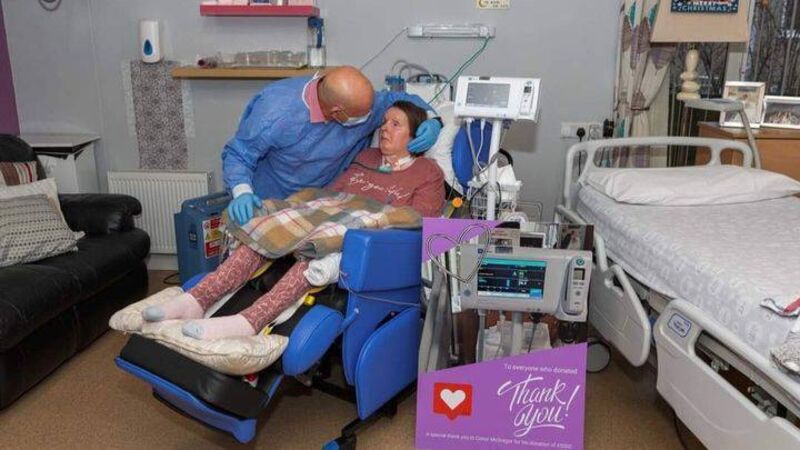Cork woman Catherine O’Leary dies after living with locked-in syndrome for 15 years

Catherine O’Leary and her father Pat from a Go Fund me page.
A woman diagnosed with a rare syndrome in 2008 that left her aware and awake but unable to move or communicate has died.
Catherine O’Leary of Carrigaline, Cork, was 32 years old when a stroke during surgery to remove a brain tumour caused locked-in syndrome.















